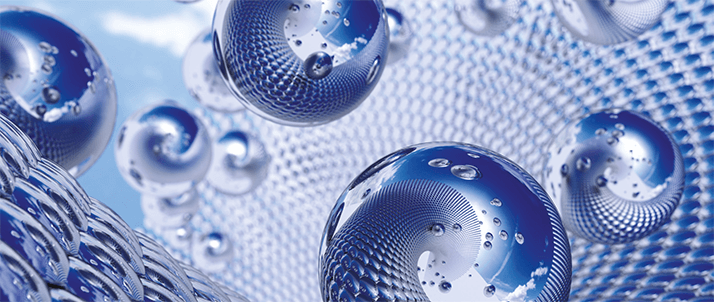Introduction
With the increasing interest in nanoparticles, various ways of detecting and measuring them are being used. One of the most promising techniques for analyzing metallic nanoparticles is inductively coupled plasma mass spectrometry (ICP-MS) run in single particle mode (SP-ICP-MS). Due to its sensitivity, flexibility, and analysis speed, ICP-MS is an ideal technique to detect and measure nanoparticles since it can determine a number of nanoparticle characteristics: inorganic composition, concentration, size, size distribution, and agglomeration.
One of the challenges with ICP-MS is overcoming interferences which can compromise results. However, this has not been an issue with most SP-ICP-MS work done to date since very few matrix-based interferences exist, and most of the nanoparticles examined thus far do not suffer from common spectral interferences. For example, gold and silver nanoparticles have many industrial applications and neither suffers from common interferences. Also, most nanoparticles are present in simple matrices which will not produce interferences.


As the field of nanotechnology is expanding, the analytical requirements are increasing, particularly, the need to measure nanoparticles containing elements which have common interferences, such as titanium, iron or silicon. As an example, zero-valent iron (ZVI) nanoparticles are being widely used in environmental remediation projects since they have specific chemical properties and a considerable surface area, making them more effective than their larger counterparts. Because of their unique properties, ZVI nanoparticles have the potential to dechlorinate organic solvents, transform fertilizer run-off to less harmful compounds, detoxify pesticides, and immobilize metals. However, in order to monitor the ZVI particles, iron must be detected, which can pose a challenge for ICP-MS because of the presence of plasma-based interferences, most notably ArO+ which occurs at the same mass (56) as the most abundant iron isotope (56Fe+ is 91.72% abundant). The most effective way to remove this interference on iron is with Reaction mode ICP-MS, using ammonia as a reaction gas. To date, most published SP-ICP-MS work has focused on nanoparticles which do not have interferences, so Reaction mode SP-ICP-MS has not been employed extensively. This work will focus on demonstrating the ability of NexION's Universal Cell Technology™ to measure nanoparticles in Reaction mode SP-ICP-MS.
Experimental
All analyses were done on a NexION® 350D ICP-MS (PerkinElmer Inc., Shelton, CT); the operating conditions are given in Table 1. Gold and iron nanoparticles were analyzed and prepared by diluting standards in deionized water. Gold was measured at mass 197 and iron at mass 56.





